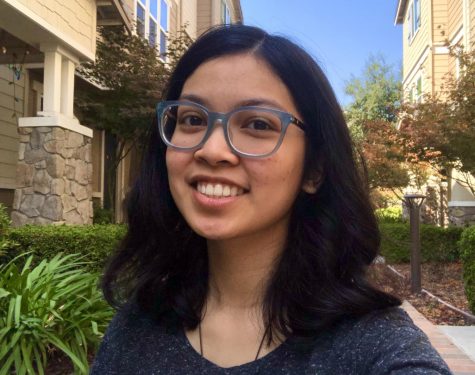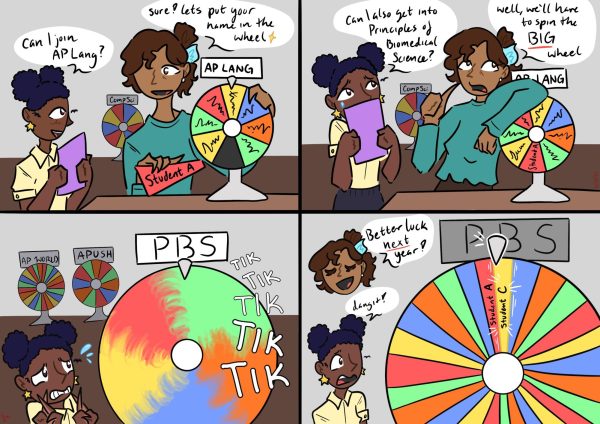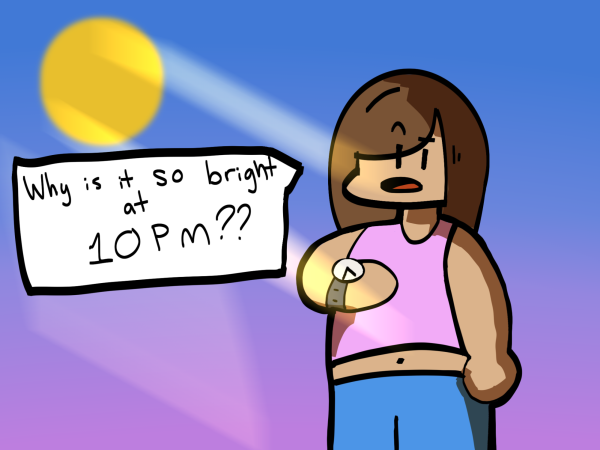Schools shouldn’t close for religious holidays
Public schools should not close for any religious reasons.
Many parents and students nationwide have been asking districts to close public schools on major religious holidays to allow kids to celebrate without worrying about schoolwork.
There are not many opportunities to make up the time that schools would lose for valuable instruction, especially at the beginning of the school year.
Two major Jewish holidays, Rosh Hashanah and Yom Kippur, occur in the fall, and many students take a day off to observe them. For many districts, these holidays come shortly after the first day of school. If schools close for religious observance, the flow of student instruction would be disrupted early on.
“[There is] no reason non-Jews should interrupt their learning so a tiny minority of Jewish students can go to synagogue,” wrote Mark Oppenheimer, editor for the online Jewish magazine Tablet.
It would be unfair for many non-Jewish students to have their learning interrupted. After a long summer break, teachers and students need time to get used to being in school again, and the early closing of schools would not help.
Excluding Thanksgiving and holiday breaks, Cal High already has four days of no school during the first semester. It also has six minimum days, excluding finals week. Because of the district’s mid-August start date, the first semester also has only 85 days, 10 fewer than the second semester.
Adding days off for religious holidays, many of which occur in the fall, would make the first semester even shorter and the second semester longer because these days would have to be added somewhere.
Constant breaks from school would especially affect those taking more advanced classes. For example, AP classes typically only have until the end of April to teach a higher volume of content in order to prepare students for AP exams. Students in such classes are expected to keep up regardless of other extracurriculars or absences.
Students who take time off school for the sake of religious holidays should not hope the system conforms to fit all of their needs.
Additionally, districts may not meet the government-mandated amount of school days if they have to close school for a few students to celebrate religious holidays.
Public schools with small Jewish populations cannot afford to halt everybody’s learning to accommodate a small demographic. Schools with larger Jewish populations may have a stronger case, but there are also various religions and cultures in America with their own holidays.
Muslims celebrate Eid al-Adha, which is like a Muslim Christmas celebrated between the end of summer to the beginning of fall. Hindu students celebrate Diwali in the fall as well.
If schools close because of Jewish holidays, it would be unfair to other students who must still attend school on their own religious or cultural holidays.
Many would argue that there is already a favored religion in the public school system: Christianity. But the only Christian holiday where there is no school is Christmas, according to the district’s instructional calendar.
Some schools don’t even distinguish Christmas as a holiday. San Francisco public schools do not list Christmas as a school holiday on their 2019-2020 academic calendar, according to San Francisco Unified School District’s website.
In America, Christmas is no longer exclusively religious and is actually a federal holiday. The argument that winter break is Christian cannot be made because many cultural holidays also take place during this time, such as Kwanzaa and, in some years, Hanukkah.
By definition, public schools are funded and operated by the government, which is constitutionally restricted from establishing a religion in America.
“It is unconstitutional for public schools and their employees to observe religious holidays,” the Anti-Defamation League (ADL) states on its website. The ADL is a global anti-hate organization known for their goal to fight anti-Semitism.
Evidently, the separation of church and state remains one of the core elements of our country. As an extension of our government, public schools should also be separated from religion and not close for religious holidays.

Angela Deanne Paloma is excited to spend her senior year and her second year in the Californian as a News Editor. Aside from journalism, she has a great...

